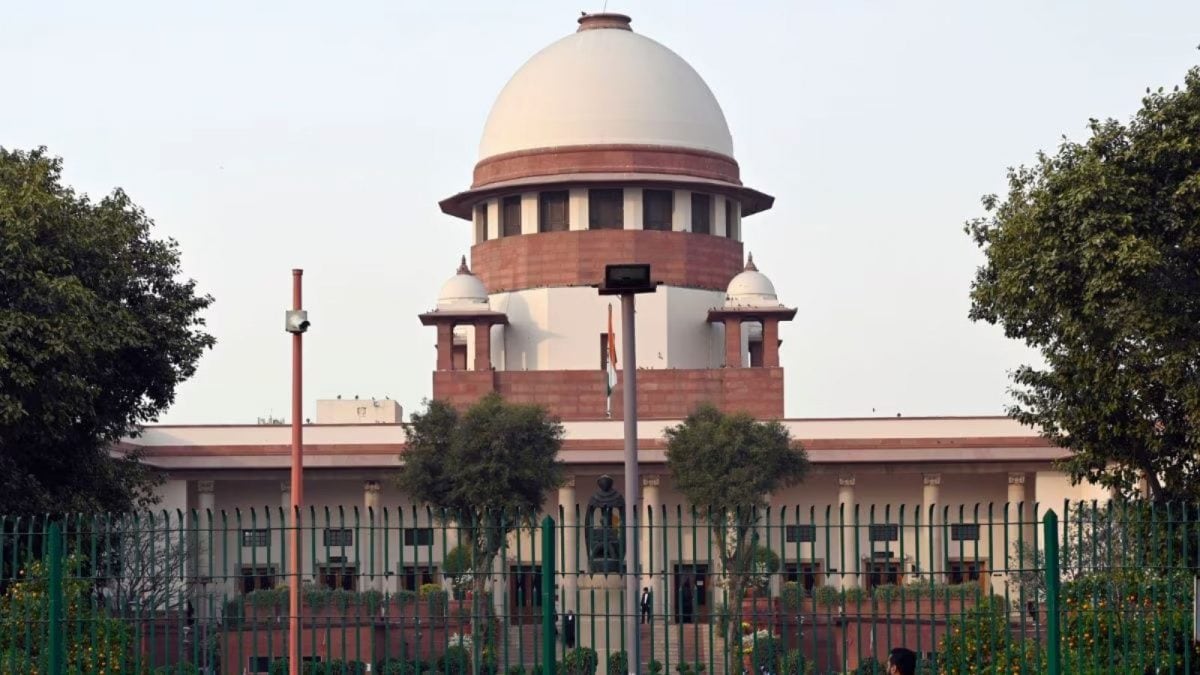Last Updated:
A bench, headed by Chief Justice BR Gavai, noted that Parliament was within its rights to remove the provision prospectively if instances of misuse were found

Supreme Court of India (PTI)
The Supreme Court on Monday refused to intervene in the abolition of the concept of waqf by the user under the Waqf (Amendment) Act, 2025, holding that the legislative decision could not be termed arbitrary.
A bench, headed by Chief Justice BR Gavai, noted that Parliament was within its rights to remove the provision prospectively if instances of misuse were found.
Recommended Stories
“If the legislature finds that the concept of ‘Waqf by User’ has to be abolished, the same cannot prima facie be said to be arbitrary,” the Court observed.
The Court clarified that the provision would not apply retrospectively.
As a result, it rejected the contention of the petitioners that properties already vested in waqfs could be taken over by the government.
“The contention of the petitioners that the lands vested in the waqfs would be grabbed by the Government prima facie holds no water,” the court observed.
Waqf by user—introduced in the 1954 Waqf Act—allowed properties such as mosques, graveyards or dargahs to be treated as waqf based on long-standing public use for religious or charitable purposes, even without formal documentation.
The law, which took effect on April 8, eliminates the ‘Waqf by user’ clause that recognised properties as Waqf solely based on long-term religious or charitable use.
According to the government, it removed the ‘Waqf by user’ concept under the Waqf (Amendment) Act, 2025, to curb alleged misuse and make formal registration mandatory.
During the past hearings, senior advocate Kapil Sibal, appearing for the petitioners, contended the government’s decision on whether properties already declared as waqf under previous legislation can now be denotified under the amended Act.
SC Stays Sections Of Waqf Act
The Supreme Court on Monday put on hold several provisions of the Waqf (Amendment) Act, 2025. A bench led by Chief Justice BR Gavai, along with Justice AG Masih, stayed multiple clauses of the law.
One of the suspended provisions is Section 3(1)(r), which required a person to have practised Islam for at least five years before creating a Waqf.
The Court also stayed the provisio to Section 3C(2), which said that a property would not be treated as Waqf until a government-appointed officer submitted a report on encroachment.
In addition, Sections 3C(3) and 3C(4) were halted. These allowed the designated officer to classify a disputed property as government land, make changes in revenue records, and direct the Waqf Board to amend its own records accordingly.
About the Author

Ronit Singh, Senior Sub-Editor at News18.com, works with the India and Breaking News team. He has a keen focus on Indian politics and aims to cover unexplored angles. Ronit is an alumnus of Christ (Deemed to be…Read More
Ronit Singh, Senior Sub-Editor at News18.com, works with the India and Breaking News team. He has a keen focus on Indian politics and aims to cover unexplored angles. Ronit is an alumnus of Christ (Deemed to be… Read More
September 15, 2025, 12:43 IST
Loading comments…
Read More



